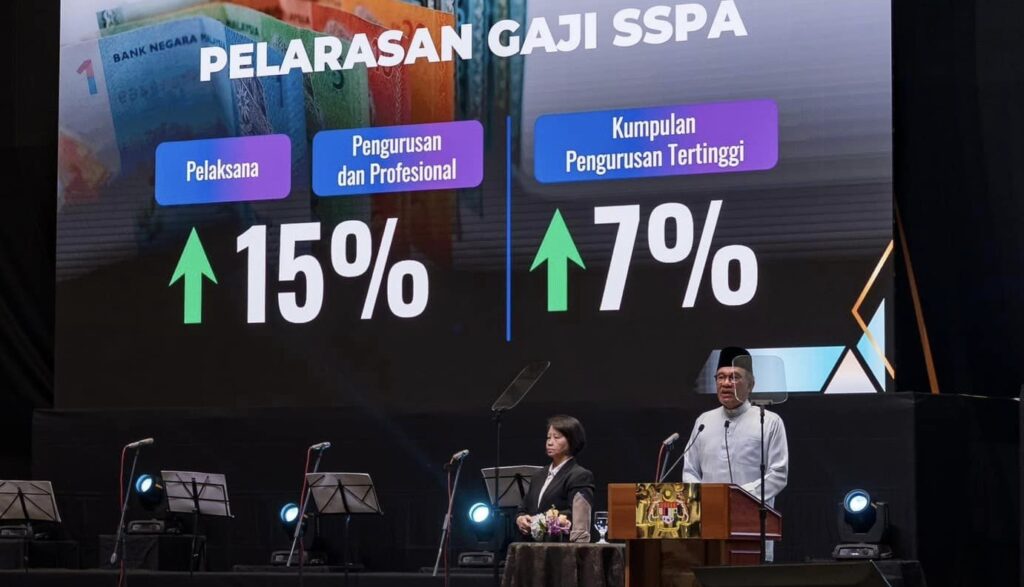
By Callistus Antony D’Angelus
OPINION: The increase in the salaries for the civil servants is welcome and long overdue. A seven to 15% salary adjustment, where the cost of living has increased inordinately over the past few years, will bring the wage levels of civil servants to a reasonable level.
It would though still not ensure that every civil servant earns a living wage at the least. Nevertheless, it is a step in the right direction and progressive improvements in that regard would need to be made hereafter.
Prime Minister, Datuk Seri Anwar Ibrahim has called on the private sector to pay its workers’ wages that are reasonable. This is a big challenge if we were to rely on the private sector to do so on their own accord, where they have been so used to operating in a system where they seek to maximize profits through the exploitation of workers and the resources of the country.
Any semblance of equality and equity can only be achieved through legislative reform, where wage equity and fair treatment of employees based on inalienable human rights principles are entrenched in legislation.
If a study were to be carried out objectively, it would be clearly evidenced that the gap between the highest and lowest earners in most companies have grown exponentially. The gap in total compensation is now at a level where it can be described as being obscene.
Corrupt practices and a lack of government oversight of previous governments in the country is the main reason for this predicament faced. The disenfranchisement felt and expressed by the poor and less privileged is largely due to the abuse by the private sector, and in particular big business, of the resources of the country.
Organisations such as the Malaysian Employers’ Federation (MEF) has forever argued against any type of reform that will take the wage levels in the country above the poverty line. They seem to conveniently ignore the rise in wage levels of senior executives. If they are genuinely and truly concerned about wage costs, perhaps they should advocate the need for a maximum wage in the country. That would certainly keep costs down.
The argument that market forces alone decides on the appropriate fair wage level is a dishonest and corrupt argument. The market does not operate independently of policy decisions. Markets move based on the aggregation of decisions made. If one company raises the wages of its CEO, the average moves upwards.
Others then follow suit, and it drives wages upwards. That is the reason why we see obscene income levels of senior executives in some companies.
The same approach and philosophy are used to depress wage levels of the low-income workers. Foreign workers have been brought into the country, where their wages are fixed at levels where Malaysians cannot afford to live on, thereby driving wage levels of the lower income group downwards.
The Prime Minister cannot do it on its own.
The business community, despite seemingly lining up behind him are actually working against his reform agenda.
The Ministry of Human Resources is of no help and is in cahoots with big business. The Prime Minister should make some ministerial changes to start with, so that his reform agenda to help alleviate the sufferings of the poor will see the light of day.
Callistus Antony D’Angelus is International Labour Advisor for Social Protection Contributors Advisory Association Malaysia (SPCAAM)